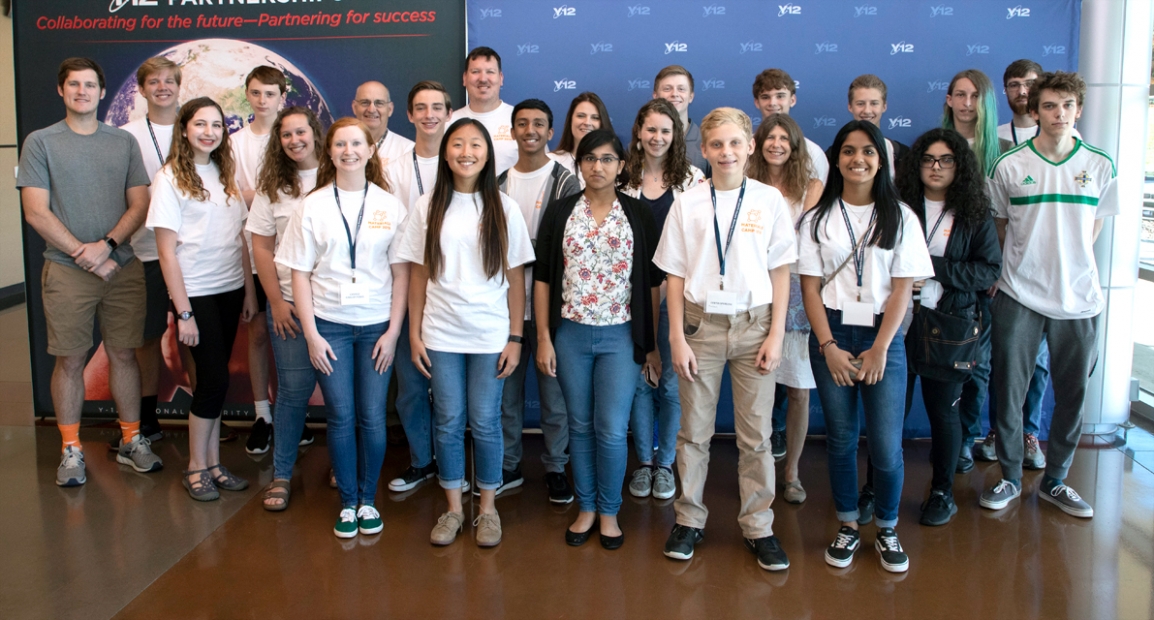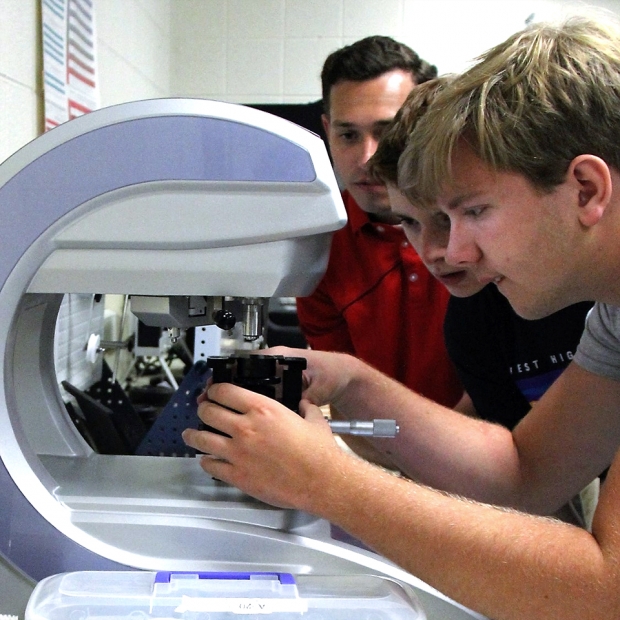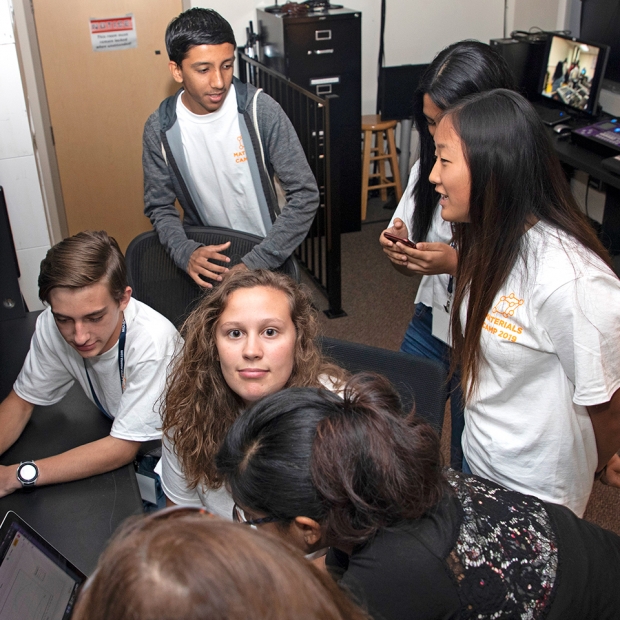Materials Camp reinvents fun
 Materials Camp participants, their instructors, and University of Tennessee student volunteers at the Y-12 National Security Complex’s New Hope Center.
Materials Camp participants, their instructors, and University of Tennessee student volunteers at the Y-12 National Security Complex’s New Hope Center.
To understand how and why things work, sometimes you have to take a close look. A really close look. Avery, a Roane County High School senior, did just that at this summer’s Materials Camp, sponsored in part by the Y-12 National Security Complex.
She and 14 other East Tennessee high school students studied nickel, iron, aluminum, copper, and other metals not by opening a textbook but by heating, hammering, grinding, bending, rolling, and polishing the materials.
“We learned how these materials behave under certain conditions and stresses,” Avery said. “Then we examined their microstructures, the different grain structures, using a scanning electron microscope and other analytical equipment.”
One of the campers’ favorite activities was pounding a hot iron bar with a forging hammer during the blacksmithing demonstration. “That was really fun and cool,” said Avery, who wanted to make sure everyone, including her camp instructors, got in a few whacks at the bar.
“Avery wasn’t going to let us leave until I had a chance to take out some aggression on that metal bar,” said Dr. Claudia Rawn, one of the camp coordinators and associate professor in the University of Tennessee’s Materials Science and Engineering department and director of UT’s Center for Materials Processing.
Having fun while learning is all part of the camp formula. Through hands-on activities and an escape- room scenario, camp instructors introduced students to materials science, which involves the properties of materials and their application in everything from high-performance electronics and airplanes to stents, heart valves, and other biotechnologies to renewable energy.
“I think all of the students now have a different view that everything is made of a variety of materials and there are opportunities to have a fascinating education and career with materials,” said camp coordinator Bob Bridges, a Y-12 metallurgist.
Before the weeklong camp, many of the students had never heard of materials science. “Most high school students thinking about majoring in an engineering discipline don’t know about materials science and engineering,” Rawn said. “A lot of STEM-oriented students know they want to major in engineering, and knowing about materials science and engineering helps them to make a more informed choice.”
The camp not only serves as a recruiting tool for area colleges but also feeds the workforce pipeline. Y-12 sponsors the camp as part of its educational outreach efforts to develop the science, technology, engineering, and math skills the site will need in the future.
“Because of this camp, I’m thinking about pursuing an education in materials science,” Avery said. “It got me thinking about different avenues for college and a career.”
In addition to UT and Consolidated Nuclear Security, which manages and operates Y-12 for the National Nuclear Security Administration, camp sponsors included the ASM Materials Education Foundation and Pellissippi State Community College.
Electron Optics Instruments and IXRF Systems, Shimadzu Scientific Instruments, Mager Scientific, and Carl Zeiss Microscopy provided almost $400,000 worth of equipment for students to use as well as staff to train campers on how to use it.
“This camp would not be possible without the huge number of volunteers who work with the students behind the scenes and donate equipment and provide expertise,” said Teri Brahams, executive director for Economic and Workforce Development at Pellissippi State Community College.
 Materials Camp students use a hardness tester to compare the relative hardness of a control sample to an unknown heat-treated sample.
Materials Camp students use a hardness tester to compare the relative hardness of a control sample to an unknown heat-treated sample. Roane County High School senior Avery (center) and other Materials Camp students work on their presentation for the final day of camp. Materials Camp “got me thinking about different avenues for college and a career,” said Avery, whose father is an electrician at the Y-12 National Security Complex.
Roane County High School senior Avery (center) and other Materials Camp students work on their presentation for the final day of camp. Materials Camp “got me thinking about different avenues for college and a career,” said Avery, whose father is an electrician at the Y-12 National Security Complex.